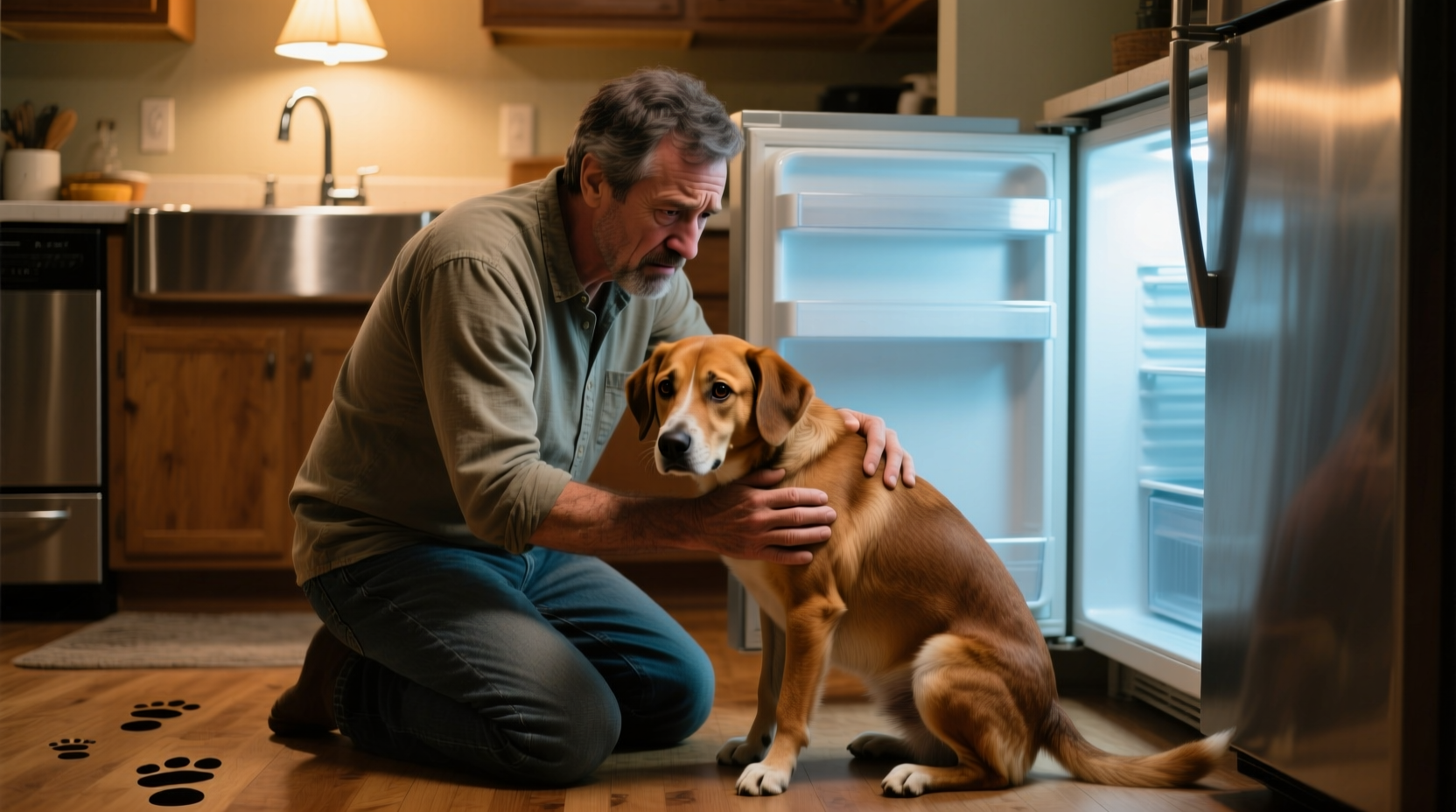Yes, onions are dangerous for dogs—even small amounts can cause life-threatening hemolytic anemia. All forms (raw, cooked, powdered) contain N-propyl disulfide that destroys red blood cells. Immediate veterinary care is required if ingestion occurs.
Discover exactly why onions pose such a serious risk to your canine companion, how to recognize poisoning symptoms, and the critical steps to take if your dog accidentally consumes them. This guide provides vet-verified facts you need to protect your pet’s health.
The Science Behind Onion Toxicity in Dogs
Onions (and all Allium family members including garlic, leeks, and chives) contain organic compounds called N-propyl disulfide and thiosulfates. When dogs ingest these substances, they oxidize hemoglobin in red blood cells, forming Heinz bodies—abnormal structures that cause red blood cells to rupture prematurely.
This process, known as hemolytic anemia, reduces oxygen delivery throughout the body. Unlike humans, dogs lack sufficient enzymes to safely metabolize these compounds. According to Cornell University College of Veterinary Medicine, onion toxicity occurs because canine red blood cells are particularly vulnerable to oxidative damage from Allium species.

How Much Onion Is Dangerous for Dogs?
The toxic threshold depends on your dog’s size and the onion form consumed. The American Kennel Club states that ingestion of just 0.5% of body weight in onions can cause poisoning. For example, a 20-pound dog could be affected by as little as 45 grams (about 1.5 ounces) of onion.
| Dog Weight | Minimum Toxic Dose | Equivalent Amount |
|---|---|---|
| 10 lbs (4.5 kg) | 22.5 grams | 1/4 cup chopped onion |
| 30 lbs (13.6 kg) | 68 grams | 3/4 cup chopped onion |
| 60 lbs (27.2 kg) | 136 grams | 1.5 cups chopped onion |
| 100 lbs (45.4 kg) | 227 grams | 2.5 cups chopped onion |
Important context: Onion powder is significantly more concentrated—just one teaspoon contains the equivalent of a whole onion. Processed foods like baby food, soups, and seasonings often contain hidden onion powder that poses serious risks.
Symptom Timeline: What to Watch For
Onion poisoning symptoms don’t appear immediately. Understanding this progression helps determine urgency:
- 0-24 hours: Vomiting, diarrhea, decreased appetite (early digestive upset)
- 24-72 hours: Lethargy, weakness, rapid breathing (signs of developing anemia)
- 3-5 days: Pale gums, dark urine (hemoglobinuria), jaundice (severe anemia indicators)
- 5+ days: Collapse, difficulty breathing (critical stage requiring emergency intervention)
The ASPCA Animal Poison Control Center emphasizes that symptoms may be delayed but can rapidly progress to life-threatening conditions without treatment.
Immediate Action Plan: What to Do If Your Dog Eats Onions
Time is critical when dealing with potential onion poisoning. Follow these vet-recommended steps:
- Calculate exposure: Estimate how much onion was consumed and your dog’s weight using the toxicity chart above
- Contact professionals immediately: Call your veterinarian or the ASPCA Animal Poison Control Center (888-426-4435) – do not wait for symptoms
- Induce vomiting only if instructed: Never attempt this without professional guidance as it may cause complications
- Preserve evidence: Save packaging or food remnants to help veterinarians determine exact exposure
- Prepare for treatment: Expect possible activated charcoal administration, IV fluids, oxygen therapy, or blood transfusion in severe cases
Preventing Onion Exposure: Practical Safety Tips
Protect your dog with these proactive measures:
- Store onions and garlic in closed cabinets—not on countertops where dogs can reach
- Dispose of food scraps securely in outdoor bins with locking lids
- Read labels carefully on processed foods—onion powder appears in many unexpected products
- Train dogs the “leave it” command to prevent counter-surfing incidents
- Inform all household members about the dangers of sharing human food containing onions
Common Misconceptions About Onions and Dogs
Several dangerous myths persist about onion safety for dogs:
- “Cooked onions are safe”: Cooking doesn’t destroy toxic compounds—it may even concentrate them
- “Small amounts won’t hurt”: Cumulative exposure from repeated small doses can cause chronic anemia
- “Only raw onions are dangerous”: Powdered, dehydrated, and cooked forms remain equally toxic
- “Garlic is safe in small doses”: Garlic contains higher concentrations of toxic compounds than onions
The Pet Poison Helpline confirms that no amount of onion is considered safe for dogs, and repeated exposure to small quantities can lead to chronic health issues.
Frequently Asked Questions
Can dogs recover from onion poisoning?
Yes, with prompt veterinary treatment, most dogs recover fully from onion poisoning. Recovery depends on the amount ingested and how quickly treatment begins. Mild cases may resolve with supportive care, while severe cases requiring blood transfusions have longer recovery periods of 1-2 weeks. Early intervention significantly improves prognosis.
How long after eating onions will a dog show symptoms?
Symptoms typically appear 24-72 hours after ingestion, though initial digestive upset like vomiting may occur within hours. The delayed onset happens because it takes time for red blood cells to accumulate enough damage to rupture. This delay makes immediate veterinary consultation crucial even if your dog seems fine initially.
Are certain dog breeds more sensitive to onion toxicity?
Yes, Japanese breeds like Shiba Inus and Akita Inus show increased sensitivity to onion toxicity due to genetic factors affecting red blood cell stability. However, all dog breeds remain at risk regardless of size or breed. Puppies and dogs with pre-existing health conditions face higher risks of complications.
Is onion powder more dangerous than fresh onions for dogs?
Yes, onion powder is significantly more concentrated and therefore more dangerous. One teaspoon of onion powder equals approximately one whole medium onion. This concentrated form appears in many processed foods like baby food, soups, and seasonings, making it a hidden danger that requires careful label reading.
Can cats eat onions too?
Cats are actually more sensitive to onion toxicity than dogs. Even small amounts can cause severe hemolytic anemia in cats. The toxic compounds affect feline red blood cells more severely due to cats' naturally shorter red blood cell lifespan. All forms of onions and garlic should be strictly avoided in cat diets.











 浙公网安备
33010002000092号
浙公网安备
33010002000092号 浙B2-20120091-4
浙B2-20120091-4